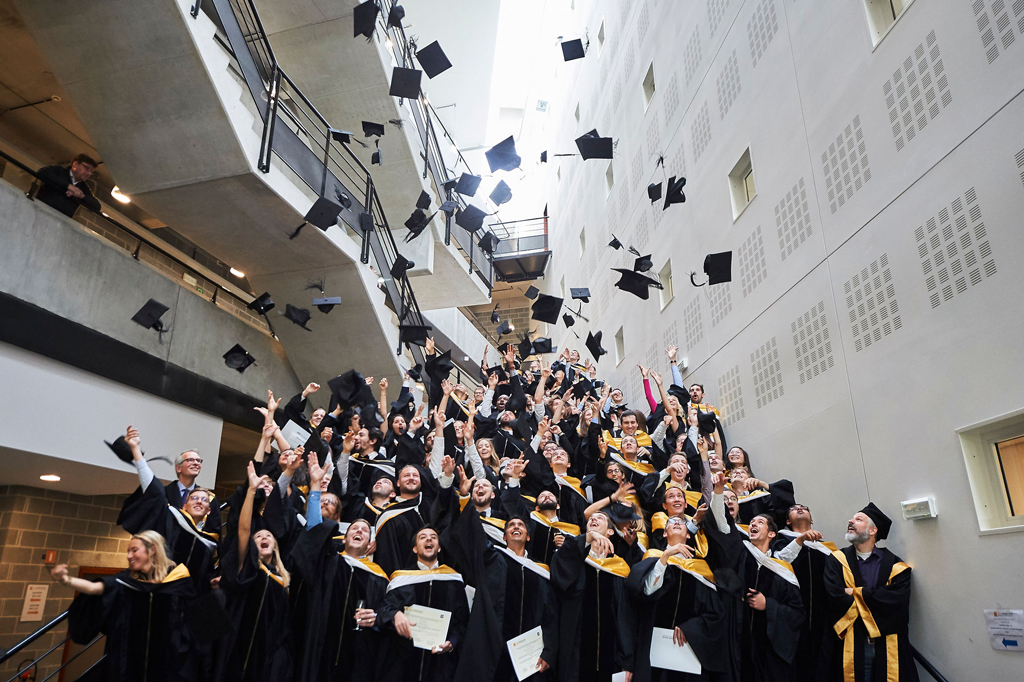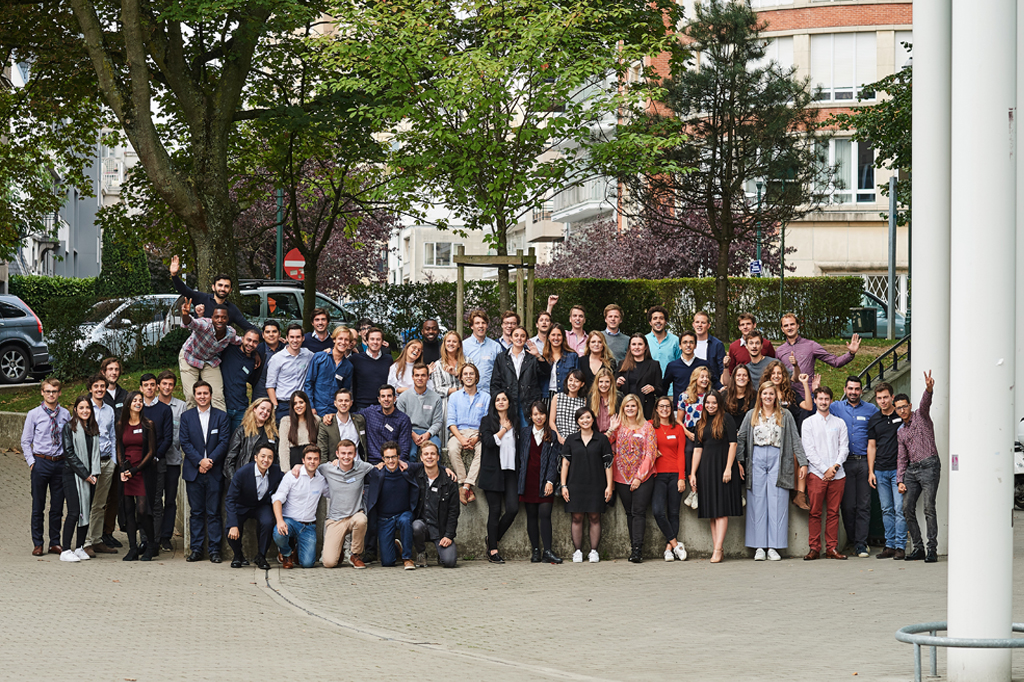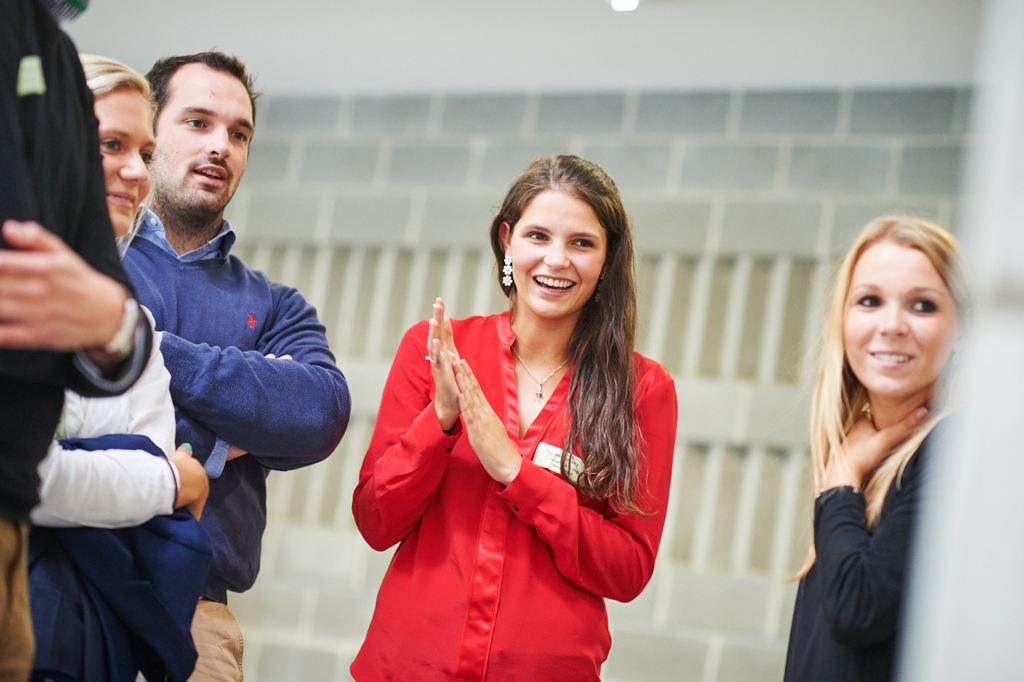Devyn Jeffereis, one of our students of our Advanced Master in Political Economy (joint degree with Georgetown University), shares his experience after having visited the European Central Bank in Frankfurt, along with his classmates.
Within the framework of the program, on-site meetings are organised throughout the year. These meetings guide students through the inner-workings of international institutions, such as the European Commission, the World Bank, the OECD, the IMF and various think tanks. In this light, our students in Political Economy had the opportunity to visit the European Central Bank in Frankfurt, back in November 2017. Here is how Devyn experienced this trip:
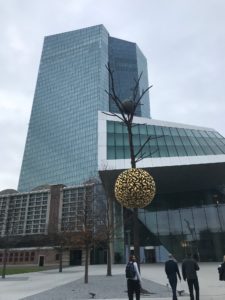
Walking into the ECB
“This trip provided an invaluable opportunity to see the inner workings of one of the most consequential policy-making institutions within the European Union. It strongly complemented our Macroeconomics classes in a very applied format. The visit consisted of four lectures, each performed by ECB economists with different specializations.
Our first seminar was presented by Jacopo Cimadomo, and focused on Fiscal Policy within the EU. Specifically, this lecture explained how the ECB is able to integrate the unique scenario of having a shared currency with different sovereign fiscal policies into the implementation of monetary policy.
The second presentation was by Wolfgang Lemk, and explained the transmission mechanisms of monetary policy and its impact on European financial markets. One interesting aspect of his presentation was the detailed explanation of yield curve dynamics stemming from the recently implemented unconventional monetary policy.
The third lecture was presented by Georg Strasser and centered on how central banks draft their communication to markets and the public. Dr. Strasser gave a comprehensive explanation regarding the delicacy of central bank forward guidance and rigorous research around specific wording.
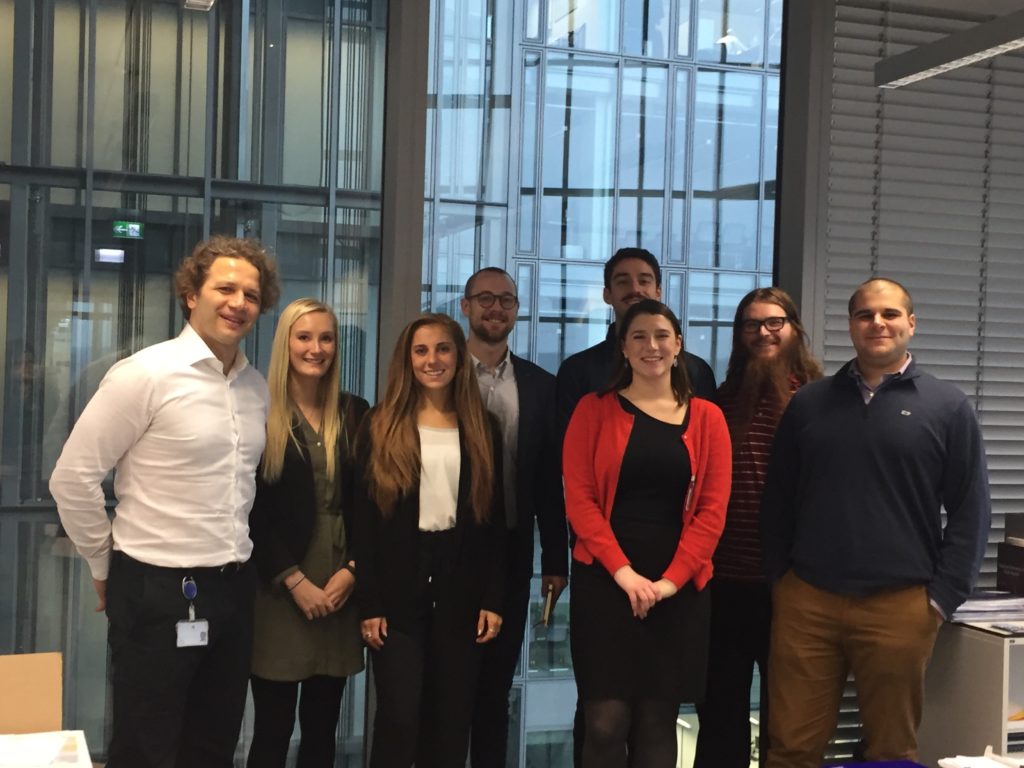
Group photo with Prof. Michele Lenza in his office
After these lectures we had a group lunch in the ECB cafeteria with our Professor Michele Lenza and some of the presenters. This was a time during the trip where we were able to speak with our presenters in an informal format. We then explored the DG section of the ECB (which is the group that Prof. Lenza manages) and got a great view from the top of the tower and his office.
Following our short tour, we returned to the conference room for our final lecture, which was a free-form question and answer session with Peter Praet, who is a ULB alumni and ECB executive committee member. This was an unparalleled opportunity to meet with one of the heads of the ECB and receive his perspective on the ECB’s current role and the future path of EU monetary policy.
This trip was a great complement to the program. Sometimes a class format can limit the applicability to real-world scenarios. However, by physically exploring the ECB and getting the opportunity to speak with policy-makers in-person, our program received additional context to the Macroeconomics course. In fact, there were multiple instances during the seminars where presenters were explaining concepts that directly coincided and built upon topics that we had covered within our course.
Even though our time in Frankfurt was extremely short due to our intense masters schedule, we were able to make a few group trips, including a visit to an authentic German restaurant the night we arrived in Frankfurt. We got the opportunity to try some of the delicious Weiner schnitzel and Frankfurters, along with locally brewed beers. It gave great perspective to our trip and allowed the masters students to spend time together in a non-academic environment. We then explored the downtown area of Frankfurt that night, including trips to local bars and shops. After the ECB trip the following morning, we used our afternoon time to visit the Frankfurt Christmas Market. Along with shopping around the different booths, we tried many different foods and warmed up from the mulled wine. After a few hours visiting the market we piled into our van to return to Brussels”.
The Brussels-Washington joint degree in Political Economy is an innovative one-year program combining the strengths of two internationally-renowned institutions. Upon successful completion of the program, two degrees are awarded, one by Solvay Brussels School and one by Georgetown University.
Learn from expert decision-makers in Europe and North-America and explore:
- The specificities and differences between the approaches taken on each continent
- Their impact in various geopolitically crucial regions around the world
- The complex relationships with other actors within this global governance architecture
☛ More information on the Advanced Master in Political Economy: am.solvay.edu/political-economy

